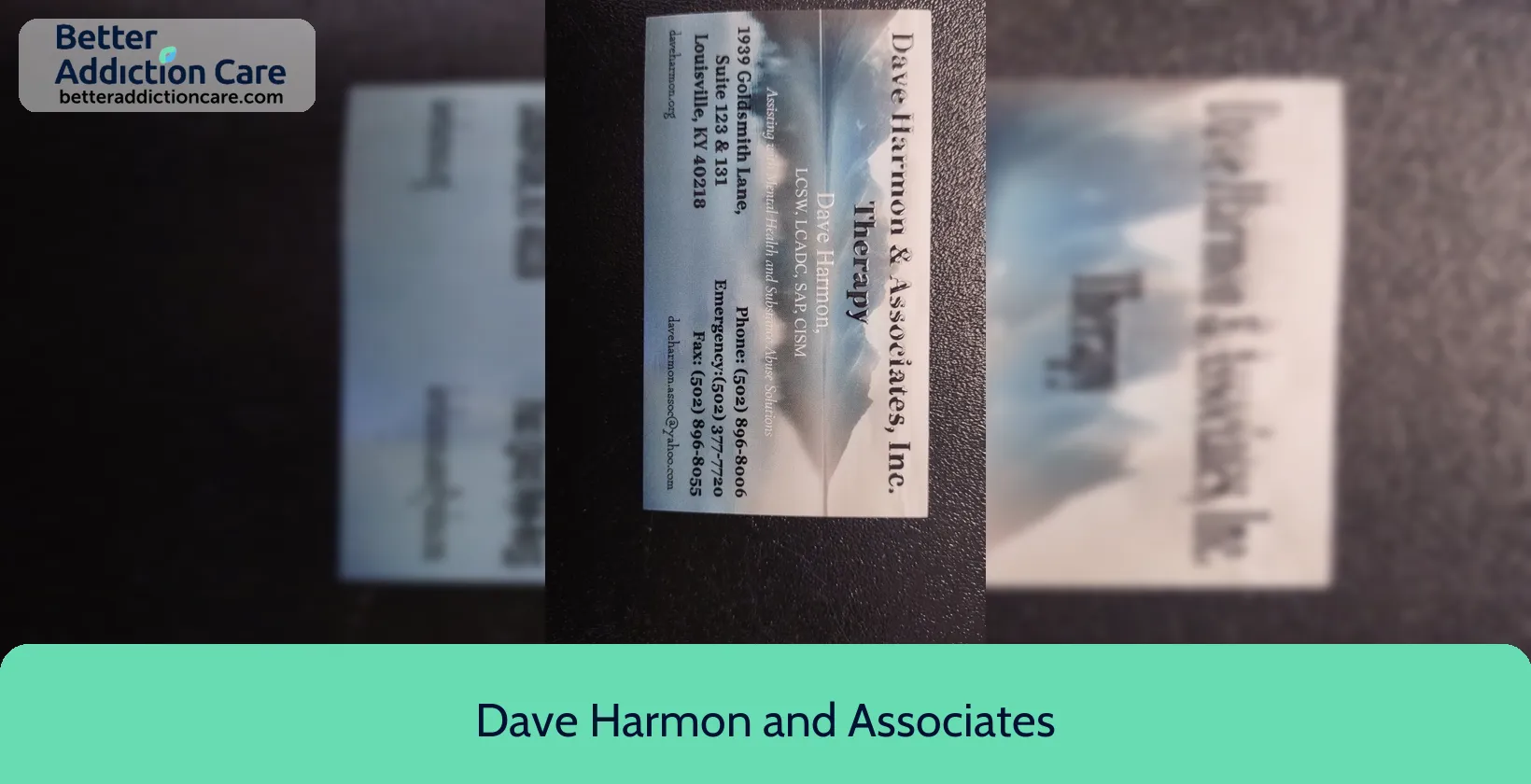Dave Harmon and Associates
Overview
Dave Harmon and Associates is a substance abuse treatment center for people seeking treatment near Jefferson County. As part of their treatment modalities for recovery, Dave Harmon and Associates provides family counseling, group counseling, and trauma-related counseling during treatment. Dave Harmon and Associates is located in Louisville, Kentucky, accepting private health insurance for treatment.
Dave Harmon and Associates at a Glance
Payment Options
- Private health insurance
- Cash or self-payment
- Sliding fee scale (fee is based on income and other factors)
- Federal military insurance (e.g., TRICARE)
- Medicaid
Assessments
- Comprehensive mental health assessment
- Comprehensive substance use assessment
- Screening for tobacco use
- Interim services for clients
- Outreach to persons in the community
Age Groups
- Adults
- Children/adolescents
- Young adults
- Seniors or older adults
- Adolescents
Ancillary Services
- Case management service
- Suicide prevention services
- Specially designed program for DUI/DWI clients
- Domestic violence services, including family or partner
- Mental health services
Highlights About Dave Harmon and Associates
7.16/10
With an overall rating of 7.16/10, this facility has following balanced range of services. Alcohol Rehabilitation: 8.40/10, Drug Rehab and Detox: 6.31/10, Insurance and Payments: 6.00/10, Treatment Options: 7.94/10.-
Alcohol Rehabilitation 8.40
-
Treatment Options 7.94
-
Drug Rehab and Detox 6.31
-
Insurance and Payments 6.00
Treatment At Dave Harmon and Associates
Treatment Conditions
- Mental health treatment
- Alcoholism
- Opioid Addiction
- Substance use treatment
- Co-occurring Disorders
Care Levels
- Intensive outpatient treatment
- Detoxification
- Outpatient
- Regular outpatient treatment
- Aftercare
Treatment Modalities
- Family counseling
- Group counseling
- Trauma-related counseling
- Individual psychotherapy
- Cognitive behavioral therapy
Ancillary Services
Languages
- Spanish
Additional Services
- Pharmacotherapies administered during treatment
- Mentoring/peer support
- Breathalyzer or blood alcohol testing
Special Programs
- Pregnant/postpartum women
- Active duty military
- Clients who have experienced trauma
- Clients with co-occurring mental and substance use disorders
- Veterans
Contact Information
Read our Most Recent Article About Drug Addiction
DISCLAIMER: The facility name, logo and brand are the property and registered trademarks of Dave Harmon and Associates, and are being used for identification and informational purposes only. Use of these names, logos and brands shall not imply endorsement. BetterAddictionCare.com is not affiliated with or sponsored by Dave Harmon and Associates.









